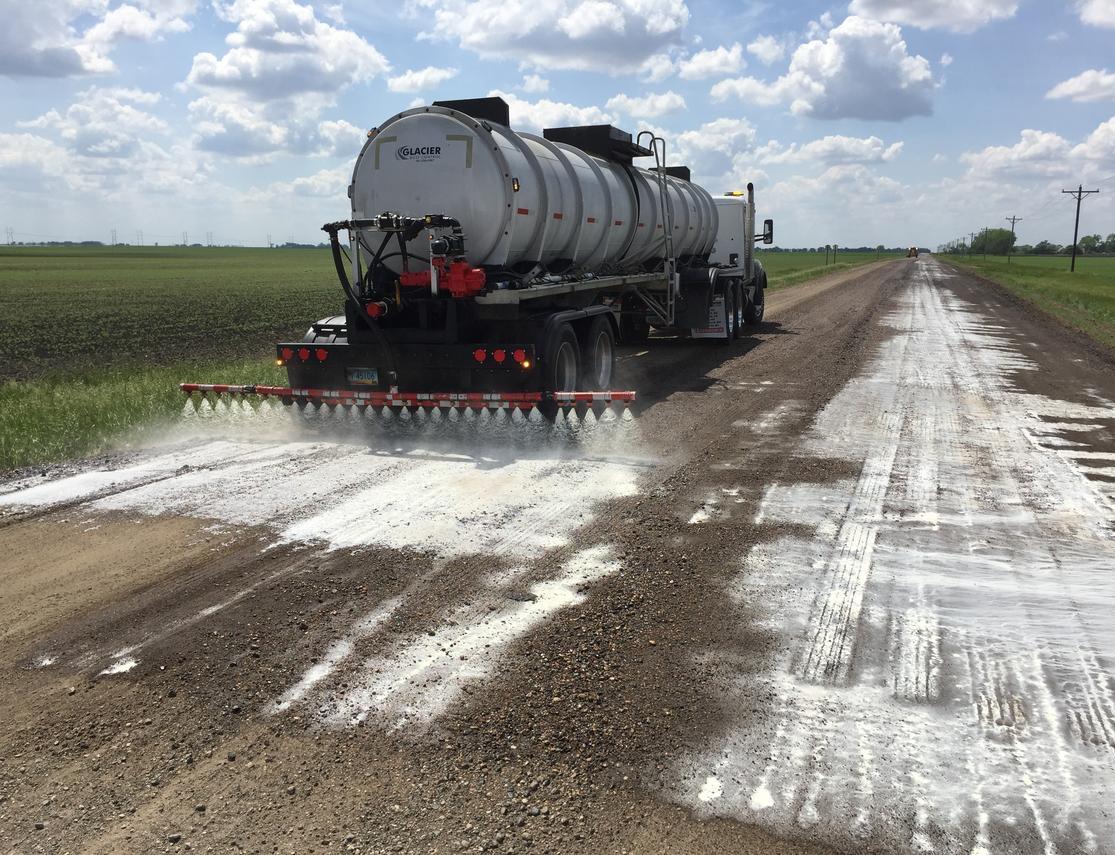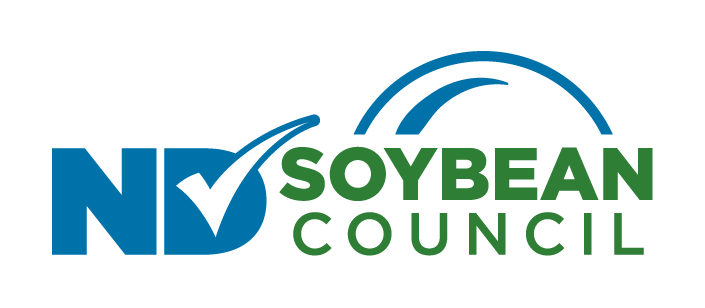21 Apr North Dakota Soybean Checkoff-funded research formulates innovative soy-biobased dust suppressant
Soy checkoff research collaboration with the United Soybean Board created a soy-biobased dust suppressant that will drive soy demand, improve air quality and reduce dust-related health and safety risks in communities nationwide.
Fargo, N.D. — A new soy-based dust suppressant is now available for roads, construction sites, farms and more, offering a sustainable choice for rural, urban and business communities to improve air quality for people, pets, livestock and crops.
This new soy-based product, BioBlend Renewable Resources’ EPIC EL dust suppressant, was made available in part by receiving research funding from the North Dakota Soybean Council (NDSC) and the United Soybean Board. North Dakota State University (NDSU) Research and Creative Activities Department Senior Research Engineer Jim Bahr, with support and funding from the NDSC, created the base chemistry that BioBlend is commercializing. BioBlend Renewable Resources will begin marketing EPIC EL nationwide in late April 2021. EPIC EL is made from soybean oil as well as glycerin, a coproduct of biodiesel production and uses approximately 190 Bushels of soybeans per 275-gallon tote of EPIC EL-100 concentrate.
“We are excited to see the soy-biobased dust suppressant available to farmers, county engineers, rural and urban areas,” says Kendall Nichols, NDSC director of research. “An environmentally friendly dust suppressant will improve air quality, protect our water and environment from contamination from salt-based road dust suppressants. EPIC EL is just one example of how the soybean checkoff continues to expand uses and demand for soybeans.”
Recognized by the USDA BioPreferred Program, EPIC EL is a long-lasting odorless water-soluble product that offers environmental benefits compared to the salt-based mixtures commonly used to control dust that trigger concerns about soil leeching and equipment corrosion. Because of Epic EL’s 100% biobased chemistry it is noncorrosive. In the event someone drives through an uncured treatment application, general soap and water will remove the product from vehicle surface.
NDSC Chairman Austin Langley describes how EPIC EL is an exciting product for producers, “Watching EPIC EL grow and become successful has been a pretty incredible journey. I’d like to relate it to our labor as farmers and ranchers seeing our crops or calves grow and ending up with a great crop! Jim Bahr’s EPIC EL has done just that – it is a bumper crop in terms of its success and the excitement it brings for the entire soy industry, proving that soy as a key ingredient in many products has potential to increase demand for our crop. We are excited to be a part of this journey launching EPIC EL and can’t wait to see where this product will take us.”
According to the Federal Highway Administration, 35% of the nation’s roads, more than 1.2 million miles, are unpaved. Dust created by vehicles traveling on these roads equates to about one ton of lost gravel per vehicle per year. Maintenance is a major budget item. In North Dakota, about 66% of local roadway budgets are spent on the state’s 60,000 miles of gravel roads. A single piece of equipment used to blade these roads costs more than $250,000.
Not only does less dust equate to better economic value in gravel preservation, but it also means safer roadways and potentially less vehicle crashes because of better visibility.
“When we look at vehicles going down the road, and we see dust going up, that dust is about a ton of material per vehicle per year per mile that we lose,” said Dale Heglund, North Dakota State University’s Upper Great Plains Transportation Institute (UGPTI), and North Dakota Local Technical Assistance Program (NDLTAP) director. “It goes onto the crops. It goes into the homes. It goes off the roadway, and we have to replenish it. When you use products like EPIC EL dust suppressant that hold that surface together, we’re not only improving the safety of the roadway, but we’re improving the gravel preservation. We’re keeping it in place. The investment that we made stays there longer.”
The Environmental Protection Agency (EPA) as well as the American Lung Association has recognized the importance of dust control due to its negative implications on the respiratory system. Short and long-term exposure to air pollutants, such as dust, is associated with a number of adverse health impacts, such as, impacting lung function and exacerbate preexisting conditions like asthma and heart disease.
Visit ndsoybean.org, unitedsoybean.org or soybiobased.org to learn more.

Soy checkoff research collaboration with the United Soybean Board created a soy-biobased dust suppressant
that will drive soy demand, improve air quality and reduce dust-related health and safety risks in communities
nationwide.

###


Sorry, the comment form is closed at this time.